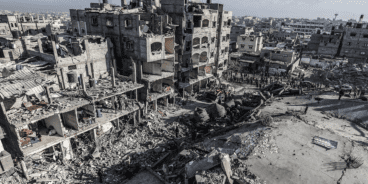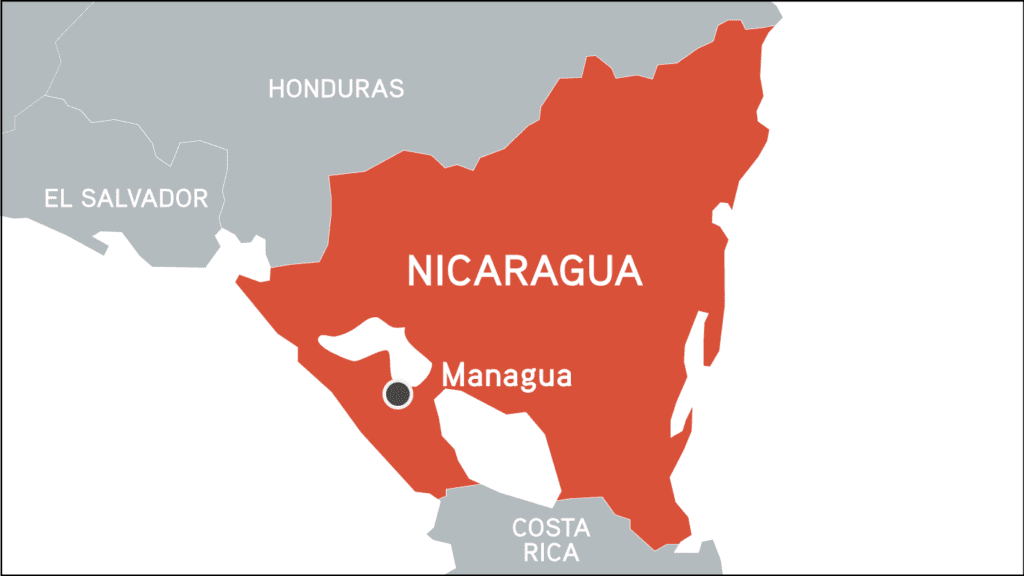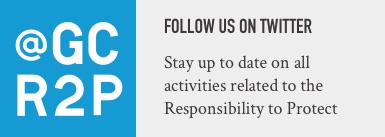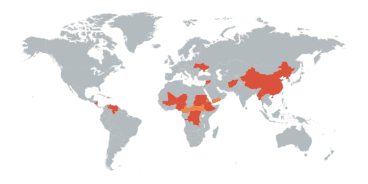
Nicaragua
As part of a systematic attempt to silence critical voices, the government of Nicaragua is perpetrating widespread violations and abuses that may amount to crimes against humanity.
BACKGROUND:
In April 2018 tens of thousands of people took to the streets in Nicaragua to protest severe pension cuts. While cracking down on demonstrations, the police – at times in coordination with pro-government armed elements – were accused of using disproportionate force against protesters, which triggered an escalation in the demonstrations. Between April and September 2018 at least 320 people were killed and 2,000 injured in the ensuing violence and crackdown. In 2018 the UN High Commissioner for Human Rights and an Interdisciplinary Group of Independent Experts mandated by the Inter-American Commission on Human Rights (IACHR) documented widespread and systematic violations and abuses of human rights perpetrated on behalf of state authorities and pro-government actors between April and May 2018, including murder, persecution and arbitrary deprivation of liberty. In response to their respective reports, the government expelled the Office of the UN High Commissioner for Human Rights (OHCHR) and the Group of Independent Experts from the country. The UN Human Rights Council-mandated Group of Human Rights Experts on Nicaragua (GHREN) has similarly reported that the government, as well as pro-government groups, have committed crimes against humanity as part of a systematic campaign to eliminate any opposition.
Since then, Nicaragua has been experiencing an unprecedented human rights crisis. Under President Daniel Ortega, the government has engaged in a broad campaign of repressing dissenting or independent voices, including human rights defenders, women’s rights groups, journalists, community leaders, students and academics, business owners and political opponents. Various government structures are committing widespread human rights violations and abuses that may amount to crimes against humanity, including murder, imprisonment, torture, sexual violence, deportation and politically motivated persecution.
The GHREN has warned that violations, abuses and crimes are committed to dismantle opposition efforts, as well as to discourage any new social mobilization. This has been exemplified by the systematic crackdown on civic space, which has resulted in the forced shut down of nongovernmental organizations (NGOs) and independent media outlets and the prosecution of independent journalists on charges of hate crimes and terrorism. Official numbers provided by local rights groups, the GHREN and OHCHR suggest that over 3,000 NGOs have been forcibly shut down since December 2018, with more than half since September 2022 alone. Several universities have also had their legal status canceled. Dozens of government critics also remain arbitrarily detained under what the GHREN has determined is a state policy. The Catholic Church, which was invited to mediate a national dialogue following state-led violence in 2018, has become one of the primary targets of persecution. Violence has also been perpetrated against Indigenous and Afro-descendant peoples, including killings, harassment, the invasion of their lands and the deliberate burning of homes.
State-led repression, targeted persecution and patterns of serious human rights violations and abuses have become more sophisticated over time. President Ortega and his wife, Vice President Rosario Murillo, have dismantled checks and balances and instrumentalized the country’s executive, judicial, legislative and electoral branches. Repression also expands beyond the country’s border, including through the deprivation of nationality, forced deportations and the prohibition of family reunifications.
RECENT DEVELOPMENTS:
In a report dated 28 February 2024 the GHREN warned that the situation has continued to deteriorate over the past year as patterns of repression have expanded toward all segments of society, including university students, members of the Catholic Church and Indigenous Peoples of African descent, among others. According to the experts, “as the Government has neared its goal of total destruction of critical voices in Nicaragua (…) there has been an exponential increase of patterns of violations focusing on incapacitating any kind of opposition in the long term.” The GHREN previously warned that patterns of attacks against universities, students and professors may constitute the crime against humanity of persecution on political grounds.
The government also severely intensified political repression ahead of regional elections in the Caribbean coast of Nicaragua during early March, including through the cancellation of the legal status of the main indigenous Afro-descendant party and the arbitrary prison sentencing of one of its members. The vote marked the first time since elections were instituted in the region that no indigenous party appeared on the ballot in what residents described as “the last pending issue of the government to impose absolute control over all authorities in Nicaragua.”
ANALYSIS:
Ongoing crimes against humanity have been facilitated in part by the deliberate dismantling of democratic institutions and safeguards since President Ortega took office in 2007. Pervasive impunity for violations committed before and since 2018 further enables such crimes. Civic space has been under systematic attack and no independent media outlet can operate within the country. In the absence of an independent national judicial system, domestic avenues to ensure redress for victims of state-led violence remain elusive.
Arbitrary criminal prosecutions are used as an instrument of political persecution, which has expanded over time and now targets a broad and diverse range of dissenting voices. Patterns of violence against opponents – including psychological torture – often vary by gender, with specific methods of torture targeting and inflicted upon women.
Nicaragua’s isolation from regional and international institutions helps facilitate the commission of atrocity crimes. Since the expulsion of OHCHR and IACHR in 2018, no independent human rights monitoring body has been able to access the country. Ongoing investigations and public reporting by the GHREN remain crucial to ensure international scrutiny of the deteriorating crisis and exert pressure on UN member states to respond to continuing atrocity crimes.
While UN member states have taken important steps to address ongoing atrocity crimes, including through the establishment of the GHREN, the international community has so far failed to apply a coordinated, holistic and robust strategy. The Nicaraguan government has also been unresponsive to targeted sanctions imposed by the European Union (EU), United States, Canada and others.
RISK ASSESSMENT:
-
- Tactics utilized by the Ortega administration to maintain absolute power facilitates systematic violations and abuses.
- Expulsion or refusal to allow the presence of NGOs, international organizations, media or other relevant actors limits public scrutiny of the government and enables ongoing persecution.
- Lack of cooperation by Nicaraguan authorities with international and regional human rights mechanisms creates significant protection gaps for populations at risk.
- Instrumentalization of the judicial system facilitates the persecution of actual or alleged opponents and perpetuates impunity.
- Lack of domestic protection mechanisms, leaving Indigenous and Afro-descendant Peoples particularly vulnerable to ongoing violence.
NECESSARY ACTION:
The government of Nicaragua must immediately halt the systematic persecution of actual or alleged opponents, allow independent media and civil society organizations to operate safely and freely and immediately release all arbitrary detained individuals. The government should commit to full and meaningful cooperation with regional and international human rights monitoring mechanisms. All human rights violations and abuses should be independently investigated and those responsible held accountable, including at the highest level of government.
UN member states should utilize the evidence collected by the GHREN to pursue accountability for victims, including through universal jurisdiction, and strengthen and expand a robust individual sanctions regime against perpetrators at the highest level within the government. Governments and regional institutions should also make use of the GHREN’s findings in all security, financial and trade relations and policies to increase pressure on the government to halt pervasive persecution. Latin American governments, together with the EU and other allies, should intensify efforts to ensure a coordinated, consistent and holistic response to the crisis which prioritizes human rights protection and democratic reform, in consultation with Nicaraguan civil society.
Related Content

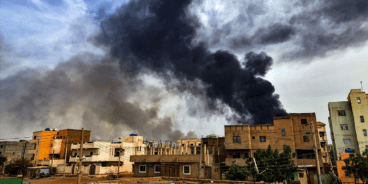
Atrocity Alert No. 390: Sudan, Myanmar (Burma) and the UN Human Rights Council
